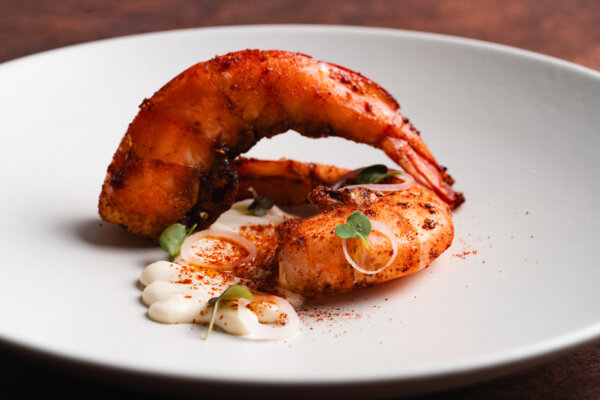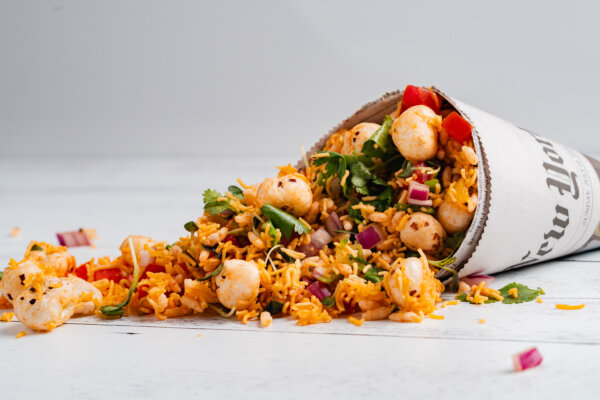

Chiles: Flavor, Not Fire
Extreme heat is often played up as a focal point of menu items and retail foods featuring chile peppers—but it’s not the whole story. With tens of thousands of chile pepper varietals found around the world, the range of spice levels, flavor profiles and colors is unparalleled. Chefs and manufacturers are utilizing chiles in new ways to showcase their flavor complexity, balancing fire with tangy, sour and sweet ingredients.
Over one-third of consumers in the US say that “sweet and spicy” is a preferred flavor profile for both protein and snacks. Products like Korean barbecue beef steak strips marinated in sweet soy sauce with garlic, onion and gochugaru chile flakes create a well-rounded flavor experience. On restaurant menus, the balance of sweet and heat plays out on items like burgers and chicken sandwiches, topped with such condiments as apple-habanero barbecue sauce, pineapple-habanero sauce or jalapeño jam.
In Europe, seafood is well-represented among chile-flavored protein launches. Sardines packed in olive oil infused with peri-peri peppers can be found on grocery shelves in Denmark, while Thai-style fishcakes heat up the frozen foods aisle in England.
While many snacks in India tend to play up heat, others showcase contrasting flavor profiles that serve to balance out the fire. Jwala chile-lime rice sticks and masala banana chips with Reshampatti pepper and mango powder are just some of the unique examples. Across Southeast Asia, 70% of the product launches inspired by mala—the signature flavor of Sichuan cuisine—fall into the snack category (Mintel, 2021). Er jing tiao chiles and Sichuan peppercorns, among other ingredients, deliver a “spicy and numbing” sensation to the end product.
The cuisines of Central and South America are abundant in peppers that add mouthwatering flavor to proteins and plant-based meat alternatives. Recent product launches include sausages seasoned with Brazilian iquinho peppers, which offer a tangy citrus taste followed by sweet and slightly smoky flavors similar to the habanero. And when habaneros are too hot, chefs around the world are taking advantage of the game-changing habanada pepper, which delivers the color, texture and fruity taste of a habanero without any heat.
Today’s consumers are ready to explore the nuanced, complex flavors of global chile peppers. Whether puréed into a condiment, dried and incorporated into a protein seasoning, pickled or infused into a broth or oil—smoky, sweet, floral and earthy chiles give menu items and retail products a memorable punch of flavor.
The key to cooking with chiles is balance. In our latest video, Chef Nitin Puri showcases how spices like cumin, coriander and black cardamom can temper the heat, creating a complex flavor profile that serves to bring out the fruity, smoky or sweet notes of peppers such as Kashmiri chiles.
QSR/FOODSERVICE:
Chefs are flexing their chile know-how by using lesser-known varieties and incorporating them into unexpected and inventive dishes.
PROTEIN PROCESSORS:
Protein products are getting on the bandwagon with unique pre-marinated chile flavors, removing the need for separate chile sauces or seasonings.
SNACKING:
CPG snacks are leveraging a wider range of chiles and describing their unique flavor profiles on-pack.
Culinary Inspiration
Get inspired by these on-trend concepts to create innovative offerings using Griffith Foods products. Please contact your Griffith Foods representative to learn how this trend can be customized to your product portfolio.
Catalan Salbitxada Sauce
Fiery red Nora chiles, almonds, tomatoes, sherry vinegar, garlic and olive oil are macerated into a smooth paste, served alongside a platter of grilled meats and green onion.
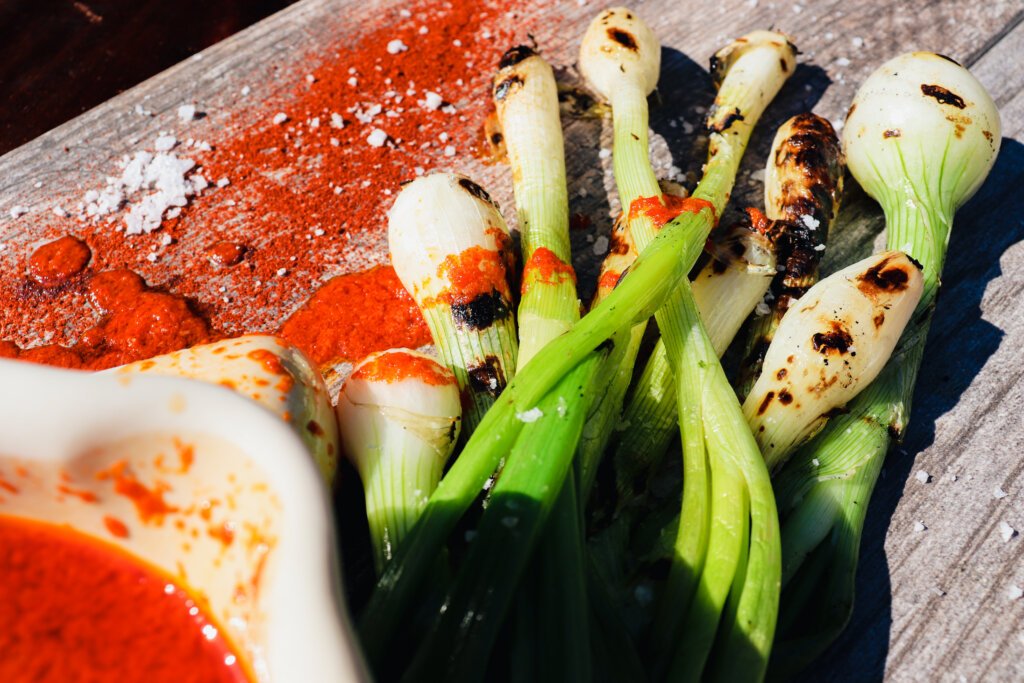
Chiles en Nogada
Roasted poblano peppers are stuffed with a hearty ground meat and fruit picadillo mixture, topped with a creamy walnut cream sauce and a garnish of pomegranate seeds and chopped parsley.
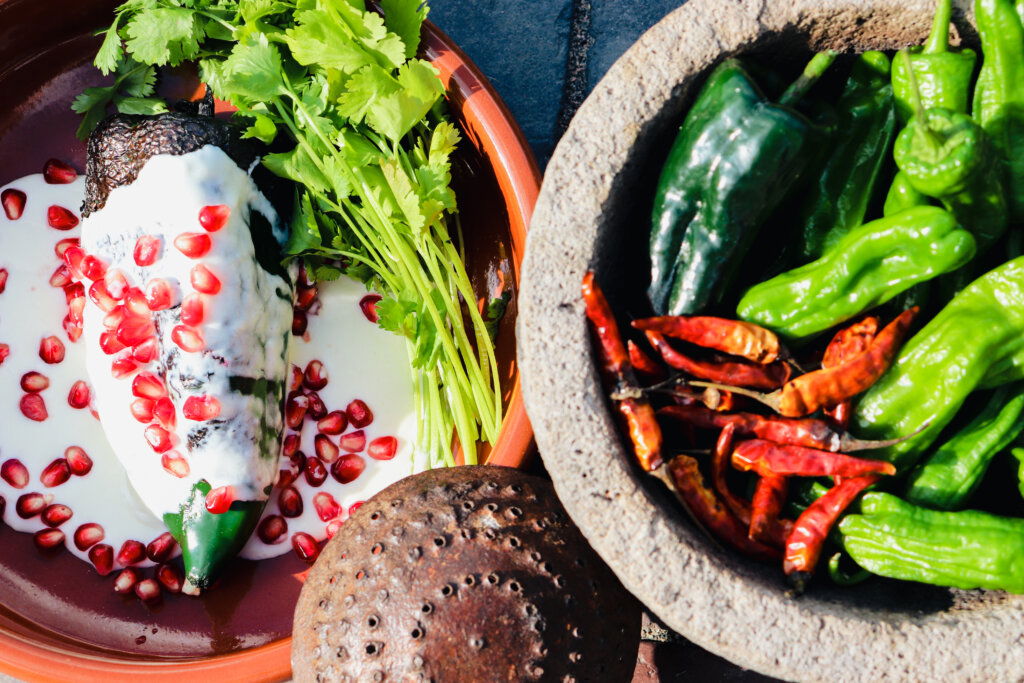
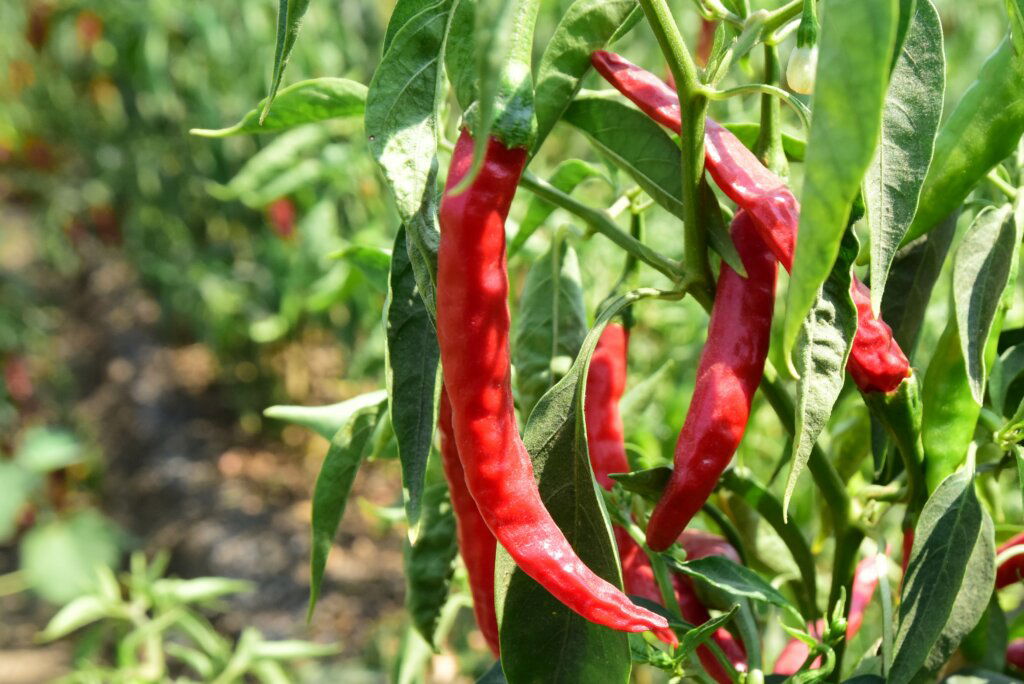
Griffith Foods sources more Indian chiles than any other spice or herb. We recently conducted a multi-year study to identify opportunities for reducing the climate impact of our chile supply chain, from reducing emissions to increasing soil carbon sequestration. As part of our larger sustainable sourcing program, Griffith Foods Sustainably Sourced (GSS), we are actively working with growers to continuously implement agricultural practices that improve the wellbeing of farmers, increase crop yields and enable farm-to-table traceability.
To learn more, click here to access our 2020 Sustainability Report.

Culinary Perspective
Chefs Nitin Puri and John Feeney share their viewpoints on the complexity of chile pepper flavors, focusing on the nuances of floral, fruity, smoky and sweet notes rather than the heat itself. They’ll also discuss unique chiles they’ve cooked with, the latest chile trends and more.

Sources:
Datassential MenuTrends, 2021.
Mintel, 2021 FlavorIQ® Global Trends and Insights Report, January 2021.
Rob Corliss, “10 Flavor Upgrades: Far Out Flavors,” Flavor & The Menu, September 14, 2020.


